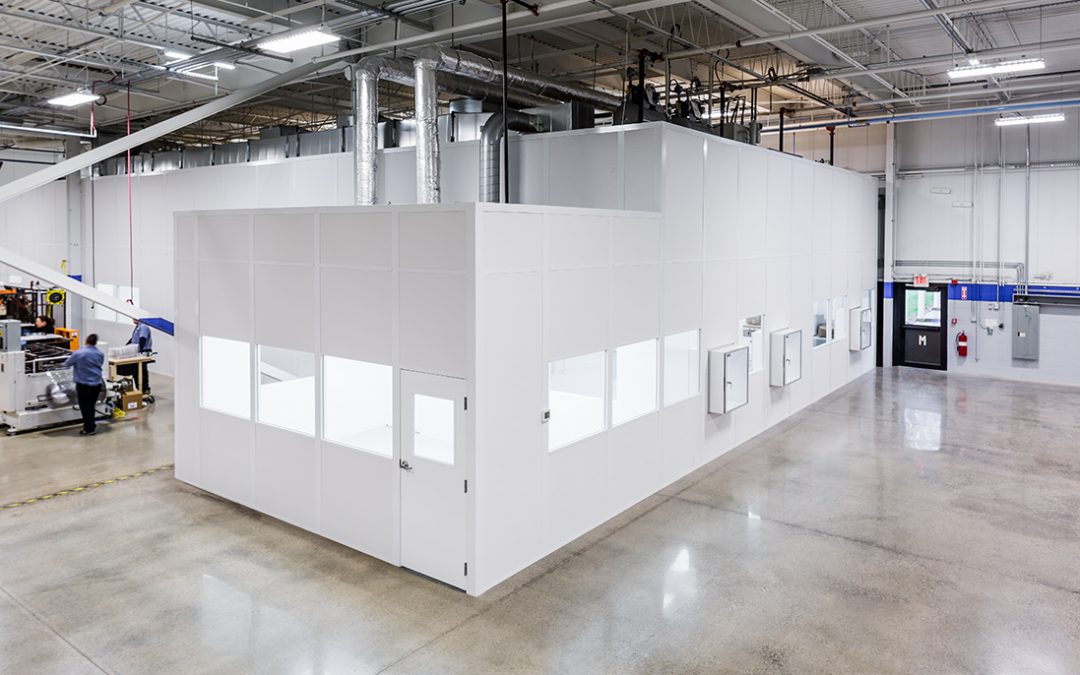If you’ve been looking into cleanroom options for your company, you may have come across the terminology “hardwall” and “softwall” in reference to different types of cleanrooms. But, what’s the difference in those types of cleanrooms? And how do you know which is right for your application? Let us break it down for you.
Hardwall Cleanrooms
Hardwall cleanrooms mimic traditional construction in that they have solid walls (hence the name) but retain greater flexibility. The benefits of hardwall cleanrooms are numerous:
- Existing HVAC incorporation—hardwall cleanrooms can utilize your building’s existing HVAC while maintaining your cleanroom standards.
- Mounted equipment—hardwall cleanrooms can be designed around already mounted equipment that is floor mounted or ceiling mounted.
- Strong environmental control—hardwall cleanrooms allow you total control over your cleanroom environment from static and temperature to particle decontamination to meet even ISO Class 1 standards
- Able to modify—hardwall cleanrooms have a modular design that makes it easy to expand or upgrade as your cleanroom needs change.
- Durable—hardwall cleanrooms have a durable frame and strong ceiling grid, so they last for a long time and never sag.
Hardwall cleanrooms are excellent for large cleanrooms and traditional cleanroom applications and can work well when strict environmental control is necessary.
Softwall Cleanrooms
Softwall cleanrooms function essentially like a tent, they are made of flexible material, unlike traditional walls, and can be freestanding or suspended from your existing structure. Some of the benefits of softwall cleanrooms include:
- Affordability—softwall cleanrooms require minimal materials and are simple in design, making them a budget-friendly option.
- Customizable—softwall cleanrooms are super flexible and can easily be customized to your application with the necessary HEPA or ULPA filters or required door type.
- Flexible—softwall cleanrooms are light and can be easily moved, whether freestanding or attached to your existing structure.
- Easy to install—softwall cleanrooms can be installed in just a few hours, with minimal tools
- Space-saving—softwall cleanrooms tend to be compact and can fit nearly anywhere.
These attributes make softwall cleanrooms great for temporary cleanrooms or cleanrooms requiring less stringent classifications, such as storage applications.
Angstrom Technology is a leader in the design, construction, and installation of both hardwall and softwall modular cleanrooms. Call us today for more information on which is right for your application!


